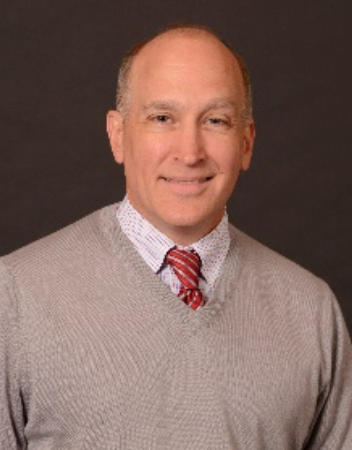The energy consumption data on the impacts of the last mile of travel is often estimated rather than calculated, resulting in uncertainty in emissions data. Students on the EPA team will develop and validate a physics-based model of energy usage of electric bikes and scooters based on environmental, geospatial, and behavioral variables, and create a simple website to communicate model results to the public.
Abstract:
Today’s global transportation sector is evolving rapidly, largely in response to concerns over climate change, the availability and accessibility of renewable energy sources, and consumer choices, forcing transformative changes to the way both people and consumer goods are transported. In order to inform future policies aimed at incentivizing best social outcomes (i.e., moving people efficiently and productively while minimizing the environmental impact), various transportation scenarios are examined using complex computer simulations, that account for the economic and environmental factors of various modes of transportation, from bikes and scooters (“micromobility”) to buses, planes and trains. Within this context, the impact of micromobility is often characterized using crude estimates of energy consumption, rather than scientifically measured data, resulting in wide uncertainty in city-level or grid-level energy and emissions estimates.
Through this project, students will test two representative micromobility modes – electric bikes and scooters – in a “real-world” environment, to measure energy consumption data in normal use. Additionally, the data will be used to develop and validate a physics-based model of energy usage of electric bikes and scooters based on environmental, geospatial, and behavioral variables. Model results will be disseminated to the public via a simple website.
The project sponsor will provide remotely located students in the U.S. with an electric scooter or bicycle to fully participate in the data collection and model validation process.
More Information
Power/Energy Modeling (2 – 3 students)
Specific Skills: Energy Balance, Battery Technology, Instrumentation
Likely Majors: EE, CE, ChE, Energy Systems, MECHENG
General Model Development (1 – 2 students)
Specific Skills: Model Development, Model Validation Back end programming and database integration with Python models
Likely Majors: DATA, IOE, STATS, MATH
Sustainibility Analysis and Public Policy (1 – 2 students)
Specific Skills: Environmental Analysis, Life Cycle Analysis, Public Policy experience or interest in public outreach and willingness to learn WordPress.
Likely Majors: CEE, EHS, SEAS MS, Sustainability minor Engineering, Economics
Sponsor Mentor
 Christina Reynolds
Christina Reynolds
Research Scientist, EPA NVFEL, Testing and Advanced Technology
Dr. Reynolds completed her PhD in Environmental Engineering from the University of Michigan before joining the EPA auto lab. Her work focuses on advanced test programs for electric vehicles – everything from the impacts of hot and cold temperatures, to battery durability using DC fast charging, to urban electric alternative mobility.
Executive Mentor
 Matt Brusstar
Matt Brusstar
Deputy Director, EPA NVFEL, Testing and Advanced Technology Division
Dr. Brusstar is the Deputy Director of the EPA laboratory in Ann Arbor, overseeing the agency’s testing of vehicles and engines to ensure compliance with environmental regulations, and to develop new science to support future regulations. Matt earned a PhD in Mechanical Engineering from the University of Michigan, and has worked in the automotive, stationary power and aerospace industries, and is passionate about the future of transportation.
Faculty Mentor
 Jason Siegel
Jason Siegel
Jason Siegel is an Associate Research Scientist in the Department of Mechanical Engineering. His research focuses on physics based modeling and control of energy storage and conversion systems including lithium-ion batteries and Proton Exchange Membrane fuel cells. Dr. Siegel was part of the team that received the 2016 IEEE CONTROL SYSTEMS TECHNOLOGY AWARD: “For the development of an advanced battery management system accounting for electro–thermo-mechanical phenomena.” He has co/authored more than 30 journal articles with an H-index of 16, and a chapter in the control systems handbook on the application of model predictive control to fuel cells. Dr. Siegel serves as the chair of the IEEE Technical Committee on Automotive Control.
Executive Faculty Mentor
 Anna Stefanopoulou
Anna Stefanopoulou
Anna G. Stefanopoulou is the Director of the Energy Institute, and the William Clay Ford Professor of Manufacturing at the University of Michigan. She has been on the faculty of the Department of Mechanical Engineering since 2000. She served as the Director of the Automotive Research Center a multi-university U.S. Army Center of Excellence in Modeling and Simulation of Ground Vehicles (2009-2018). She was an assistant professor (1998-2000) at the University of California, Santa Barbara and a technical specialist (1996-1997) at Ford Motor Company where she developed nonlinear and multivariable models and controllers for advanced engines; her algorithms were implemented and tested in experimental vehicles.
Course Substitutions: TBD
Internship/Summer Opportunity: U.S. citizens and permanent residents will be guaranteed an interview for a 2021 internship with the EPA NVFEL in Ann Arbor. The interviews will take place between January and April 2021. A summer stipend to continue work on campus may be available from MDP to continue work with Professor Stefanopoulou during summer 2021.
Citizenship Requirements: This project is open to all students.
IP/NDA: The project will be open source and all students must sign an open source agreement.
